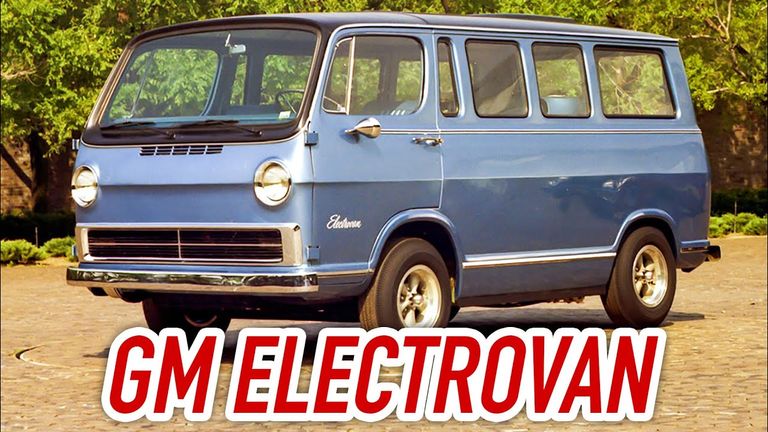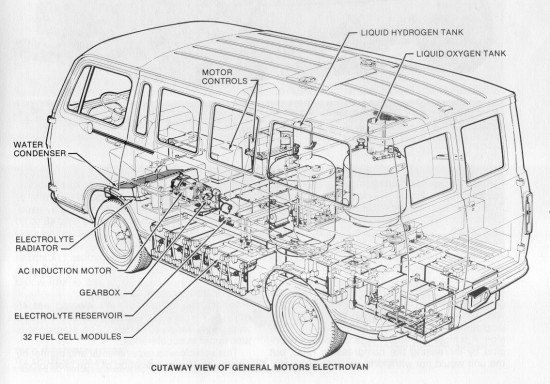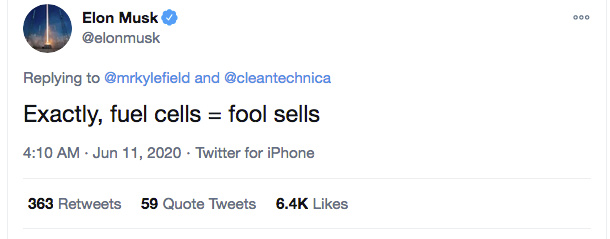Is hydrogen the future? In this post I will look into both the economic and technical factors of Hydrogen vehicles and discuss what infrastructure would be needed to support true zero emission hydrogen vehicles.


(Above is a a photo of the 1966 GM Electro Van, one of the earliest hydrogen vehicles created. Photo source: GMHeritageCenter.com)
The invention of Hydrogen fuel cell vehicles has generated a lot of opposing opinions in the industry of zero emission vehicles. Though the technology and the infrastructure to support hydrogen has not fully been developed, it seems that many EV companies are already dismissive of its possibilities. A couple of years ago in an interview with CNBC, Tesla CEO Elon Musk, described Hydrogen fuel cells as “mind bogglingly stupid” later referring to them as “hydrogen fool cell vehicles ”. So what does Elon Musk mean by this and why would he disregard a potential green alternative to gas or fossil fuels? After diving deeper into the issue, there seem to be several reasons for Musks contempt towards the technology.

From my personal research I have gathered that the first and most prominent issue with hydrogen is the cost of ownership, which rises exponentially when factoring in the price of hydrogen fuel (currently $16 for one kilogram of hydrogen gas). To put this into perspective, 1 kg of hydrogen translates to roughly 4l of gasoline which would cost about $6.76CAD as of today. This makes hydrogen cars out of reach financially for many people. This also means that hydrogen cars would represent a very niche market which would translate to little return on investment for the companies building them. So in a sense, the development of hydrogen vehicles doesn’t really make sense financially for many companies unless they want to take a gamble.
Looking at the more technical aspects of hydrogen technology also reveals that it may not be as green as it seems. To fuel a hydrogen car you first need to create hydrogen gas. This process can be done through one of two ways. The first and most prevalent method is through a process called steam-methane reforming which uses heat and steam that reacts with a hydrocarbon fuel to produce hydrogen. As you can imagine, this really isn’t any better for the environment than using gasoline in a traditional combustion engine. It’s like doing more work to achieve the same result. The second method is through a process called electrolysis, which uses electricity to split water into hydrogen and oxygen. While electrolysis seems a lot more efficient and sustainable, it largely depends on what type of process is used to harness the the electricity used in the process. If the electricity is generated through the burning of fossil fuels, then this process becomes just as unsustainable. Comparably, if we use hydro, solar or wind power to produce the electricity used in electrolysis then it could be a viable option for the creation of hydrogen to power vehicles in the future.
However, this raises the question: if we develop a way to sustainably and efficiently generate electricity, why go through the process of then using that electricity to generate hydrogen instead of just using it directly to power EV’s? This is probably what Musk was referring to when said that “hydrogen is stupid”. When compared with EV’s the process of making hydrogen is simply less efficient. I think that the major takeaway from my research is that before we establish an efficient zero emission form of transportation, we first need to invest in and develop efficient ways of generating electricity.
So is there really a place for hydrogen fuel cell vehicles in the future or do EV’s have too strong of a hold over the market? What do you think?
This is my first article about hydrogen technology and as I learn more about them I hope to write some more in depth posts further comparing them to electric vehicles.
Hope you enjoyed this article. Thanks for reading !
I worked in engineering in the automotive trade for decades, hydrogen is not the future, it will be regulated to death, browns gas on the other hand is a different story, I am and have been working, making browns gas systems for 2 decades both here and in Thailand, the latter is still being sold there, but I did not copyright it, as I like breathing, so gave the idea away.
Do vehicles that use hydrogen fuel have a larger engine size than vehicles that use gasoline?
No. Same size if browns gas, you could maximize potential with a rotary engine, but it is complex and high maintenance with regards the average user/consumer.
It is a very complex question with a lot of variables.
I am still working on the on demand variable HHO system, although even that has limits due to weight and energy consumption to convert water to HHO.
Congratulations, your post has been curated by @r2cornell-curate. Also, find us on Discord
Felicitaciones, su publication ha sido votado por @r2cornell-curate. También, encuéntranos en Discord
Congratulations, your post has been curated by @techclub
Manually curated by @samhenrytenplus